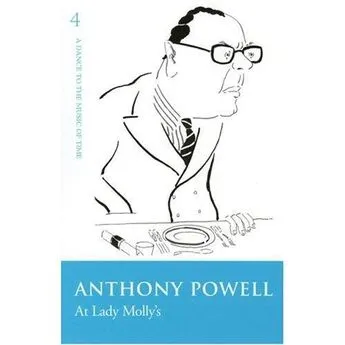Anthony Powell - A Buyers Market
- Название:A Buyers Market
- Автор:
- Жанр:
- Издательство:Arrow
- Год:2005
- ISBN:нет данных
- Рейтинг:
- Избранное:Добавить в избранное
-
Отзывы:
-
Ваша оценка:
Anthony Powell - A Buyers Market краткое содержание
Anthony Powell's universally acclaimed epic A Dance to the Music of Time offers a matchless panorama of twentieth-century London. Now, for the first time in decades, readers in the United States can read the books of Dance as they were originally published-as twelve individual novels-but with a twenty-first-century twist: they're available only as e-books. The second volume, A Buyer's Market (1952), finds young Nick Jenkins struggling to establish himself in London. Amid the fever of the 1920s, he attends formal dinners and wild parties; makes his first tentative forays into the worlds of art, culture, and bohemian life; and suffers his first disappointments in love. Old friends come and go, but the paths they once shared are rapidly diverging: Stringham is settling into a life of debauchery and drink, Templer is plunging into the world of business, and Widmerpool, though still a figure of out-of-place grotesquerie, remains unbowed, confident in his own importance and eventual success. A Buyer's Market is a striking portrait of the pleasures and anxieties of early adulthood, set against a backdrop of London life and culture at one of its most effervescent moments.
A Buyers Market - читать онлайн бесплатно полную версию (весь текст целиком)
Интервал:
Закладка:
“I cannot say I altogether like these parties,” he said. “A great many of them seem to be given these days. Paris was just the same. I really should not have accepted your nice-looking friend’s invitation if we had not had such a very indifferent evening with War Never Pays! As it was, I felt some recreation was deserved — though I fear I shall not find much here. Not, at least, in any form likely to appeal to my present mood. By the way, I don’t know whether you would ever care to lend a hand with War Never Pays! , a penny, one of these days? We are always glad to enlist new helpers.”
I excused myself decisively from any such undertaking on grounds of lacking aptitude for any kind of salesmanship.
“Not everyone feels it a bounden duty,” said Mr. Deacon. “I need not tell you that Gypsy is scarcely a colleague I should choose, if I were a free agent, but she is so keen I cannot very well raise objection. Her political motives are not identical with my own, but Pacifism is ally of all who desire this country’s disarmament. Do you know, I even put her up at my place? After all, you can’t expect her to get all the way back to Hendon Central at this time of night. It wouldn’t be right.”
He spoke almost with unction at the nobility of such self-sacrifice, and, finishing his champagne at a gulp, wiped the corners of his mouth carefully with a silk handkerchief. On the wall opposite us, one of the panels of the room had been replaced — possibly with the object of increasing the rather “daring” effect at which decoration of the house evidently aimed — with squares of looking-glass, in the reflections of which could be observed the changing pattern made by the occupants of the room.
The lady with the tiara had at last reluctantly abandoned the magnum to her bearded opponent (now accommodated with a younger, though less conspicuous, woman), and, apparently much flattered by the attention, she was accepting a cigarette from the Negro’s long case, which he was holding out towards her, the metal seeming delicately matched in tone with the skin of its owner’s hand, also the tint of old gold. Beyond this couple, the gentleman with the eye-glass and medals was now talking to a figure whose back-view — for some reason familiar — showed an immensely time-worn suit of evening clothes, the crumpled tails of which hung down almost to its wearer’s heels, giving him the appearance of a musical-hall comedian, or conjuror of burlesque, whose baggy Charlie Chaplin trousers, threatening descent to the ground at any moment, would probably reveal red flannel, grotesquely spotted, or some otherwise traditionally comic, underclothes, or lack of them, beneath. Matted white hair protruded over the back of this person’s collar, and he was alternately rubbing together his hands and replacing them in the pockets of these elephantine trousers, while he stood nodding his head, and sagging slightly at the knees. I suddenly became aware, with some surprise, that the man with the medals was Colonel Budd — Margaret Budd’s father — who held some minor appointment at Court. He had also perhaps, “come on” from the Huntercombes’.
“She reposes herself at the back of the shop,” said Mr. Deacon, pursuing the topic of his connection with Gypsy Jones. “I make up the bed — a divan — myself, with some rather fine Cashmere shawls a former patron of mine left me in his will. However, I don’t expect she will need them on a warm night like this. Just as well, if they’re not to be worn to shreds. As a matter of fact they are going for a mere song if you happen to know anyone interested in Oriental textiles. I can always find something else to put over Gypsy. Of course Barnby doesn’t much like her being there.”
I did not at that time know who Barnby might be, though I felt sure that I had heard of him; connecting the name — as it turned out, correctly — with painting.
“I see his point,” said Mr. Deacon, “even though I know little of such things. Gypsy’s attitude naturally — perhaps Barnby would prefer me to say ‘unnaturally’—offends his amour propre . In some ways he is not an ideal tenant himself. I don’t want women running up and down stairs all day long — and all night long too, for that matter — just because I have to put up with Gypsy in a good cause.”
He spoke complainingly, and paused for breath, coughing throatily, as if he might be suffering from asthma. Both of us helped ourselves to another drink. Meanwhile, seen in the looking-glass, Colonel Budd and the wearer of the Charlie Chaplin trousers now began to edge their way round the wall to where a plump youth with a hooked nose and black curly hair, perhaps an Oriental, was talking to a couple of strikingly pretty girls. For a minute or two I had already been conscious of something capable of recognition about the old clothes and assured carriage of the baggy-trousered personage, whose face, until that moment, had been hidden from me. When he turned towards the room, I found that die features were Sillery’s, not seen since I had come down from the university.
To happen upon Sillery in London at that season of the year was surprising. Usually, by the time the first few weeks of the Long Vacation had passed, he was already abroad, in Austria or Italy, with a reading party of picked undergraduates: or even a fellow don or two, chosen with equal care, always twenty or thirty years younger than himself. Sillery, probably with wisdom, always considered himself at a disadvantage outside his own academical strongholds. He was accordingly accustomed, on the whole, to emphasise the corruption of metropolitan life as such, in spite of almost febrile interest in the affairs of those who found themselves habitually engaged in London’s social activities; but, on the other hand, if passing through on his way to the Continent, he would naturally welcome opportunity to be present, as if by accident, at a party of this kind, when luck put such a chance in his way. The accumulated gossip there obtainable could be secreted, and eked out for weeks and months — even years — at his own tea-parties; or injected in judiciously homeopathic doses to rebut and subdue refractory colleagues at High Table. Possibly, with a view to enjoying such potential benefits, he might even have delayed departure to the lakes and mountains where his summers were chiefly spent; but if he had come to London specially to be present, there could be no doubt that it was to pursue here some negotiation judged by himself to be of first-rate importance.
As they skirted the wall, Sillery and his companion, by contrast remarkably spruce, had almost the appearance of a pair of desperadoes on their way to commit an act of violence, and, on reaching the place where the dark young man was standing, the Colonel certainly seemed to get rid of the women without much ceremony, treating them almost as a policeman might peremptorily “move on” from the corner of the street female loiterers of dubious complexion. The taller of the two girls was largely built, with china-blue eyes and yellow hair, holding herself in a somewhat conventionally languorous style: the other, dark, with small, pointed breasts and a neat, supple figure. The combined effect of their beauty was irresistible, causing a kind of involuntary pang, as if for a split-second I loved both of them passionately; though a further survey convinced me that nothing so disturbing had taken place. The girls composedly allowed themselves to be dislodged by Colonel Budd and Sillery: at the same time remaining on guard in a strategic position at a short distance, talking and laughing with each other, and with people in the immediate neighbourhood: evidently unwilling to abandon entirely their original stations vis-à-vis the young man.
The Colonel, imperceptibly inclining his neck in an abrupt gesture suggesting almost the sudden suppression of an unexpected eructation, presented Sillery, not without deference to this rather mysterious figure, regarding whom I had begun to feel a decided curiosity. The young man, smiling graciously, though rather shyly, held out a hand. Sillery, grinning broadly in return, made a deep bow that seemed, by its mixture of farce and formality, to accord perfectly with the cut of his evening clothes, in their implication of pantomime or charade. However, fearing that absorption in this scene, as reflected in the looking-glass, might have made me seem inattentive to Mr. Deacon’s exposition of difficulties experienced in contending with his household, I made further inquiries regarding Barnby’s status as a painter. Mr. Deacon did not warm to this subject. I found when I knew him better that this luke-warm attitude was not to be attributed entirely to jealousy he might feel towards Barnby’s success, but rather because, finding his own views on the subject so opposed to contemporary opinion as to be in practice untenable, he preferred to close his eyes to the existence of modern painting, just as formerly he had closed his eyes to politics and war. Accordingly, I asked about the nature of Barnby’s objections to Gypsy Jones.
“When Gypsy and I were first acquainted,” said Mr. Deacon, lowering his voice, “I was given to understand — well, hasn’t Swinburne got some lines about ‘wandering watery sighs where the sea sobs round Lesbian promontories’? In fact restriction to such a coastline was almost a condition of our association.”
“Did Barnby object?”
“I think he undoubtedly felt resentment,” said Mr. Deacon. “But, as a very dear friend of mine once remarked when I was a young man — for I was a young man once, whatever you may think to the contrary—‘Gothic manners don’t mix with Greek morals.’ Gypsy would never learn that.”
Mr. Deacon stopped speaking. He seemed to be deliberating within himself whether or not to ask some question, in the wording of which he found perhaps a certain embarrassment. After a few seconds he said: “As a matter of fact I am rather worried about Gypsy. I suppose you don’t happen to know the address of any medicos — I don’t mean the usual general practitioner with the restricted views of his profession — no, I didn’t for a moment suppose that you did. And of course one does not wish to get mixed up. I feel just the same as yourself. But you were inquiring about Barnby. I really must arrange for you to meet. I think you would like each other.”
When such scraps of gossip are committed to paper, the words bear a heavier weight than when the same information is imparted huskily between draughts of champagne, in the noise of a crowded room; besides which, my thoughts hovering still on the two girls who had been displaced by Sillery and Colonel Budd, I had not been giving very full attention to what Mr. Deacon had been saying. However, if I had at that moment considered Gypsy Jones’s difficulties with any seriousness, I should probably have decided, rightly or wrongly, that she was well able to look after herself. Even in the quietest forms of life the untoward is rarely far from the surface, and in the intemperate circles to which she seemed to belong nothing was surprising. I felt at the time absolutely no inclination to pursue the matter further. Mr. Deacon himself became temporarily lost in thought.
Our attention was at that moment violently reorientated by the return to the room of Mrs. Andriadis, who now shouted — a less forcible word would have been inadequate to describe her manner of announcing the news — that “darling Max” was going to sing: a statement creating a small upheaval in our immediate surroundings, owing to the proximity of the piano, upon which a bottle of champagne was now placed. A mild-looking young man in spectacles was thrust through the crowd, who seating himself on the music-stool, protested: “Must I really tickle the dominoes?” A number of voices at once encouraged him to embark upon his musical activity, and, after winding round the seat once or twice, apparently more as a ritual than for practical reasons, he struck a few chords.
Читать дальшеИнтервал:
Закладка:









